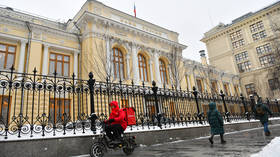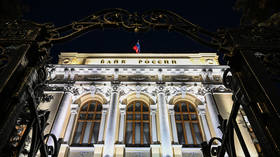Bank of Russia names conditions for interest rate cuts

The Russian central bank is considering gradually reducing its key interest rate in 2025 if inflation is brought down closer to target levels and the economy does not face new external shocks, the head of the regulator, Elvira Nabiullina, said on Tuesday.
In October, the Bank of Russia raised its key rate by 200 basis points to a record high of 21%, citing persistent inflation that “considerably” exceeded the regulator’s July outlook of 6.5-7.0% for the current year. At the time, commenting on the hike, Nabiullina said that inflation was expected to be double the regulator’s target of 4% annually, emphasizing that the bank remains committed to bringing it down to the target level.
Speaking at a State Duma panel session, Nabiullina stressed that persistently high corporate lending growth is a key reason for maintaining tight monetary policy amid high inflation.
“We believe that our policy will reduce inflation to 4.5-5% next year, and then stabilize it at a level close to 4%,” Nabiullina said. “As it slows down, we will consider a gradual reduction of the key rate. If there are no additional external shocks, the reduction will begin next year.”
Nabiullina noted that credit activity has been slowing down in response to tight monetary policy, but some sectors, as well as the country’s major borrowers, continue to take out loans at high interest rates. She specified that Russian enterprises borrowed 1.6 trillion rubles ($1.6 billion) in August and nearly the same amount in September, adding that a similar amount is preliminarily projected for October.
The central bank governor also said that the regulator expects corporate lending growth to slow down further, adding that it will inevitably lead to a decrease in the current inflation rate, and “then we will see a reversal in the annual inflation rate.”
“It will confirm that the monetary policy has finally reached the required rigidity in order to curb price growth, taking into account all the circumstances that affect inflation,” Nabiullina concluded.













